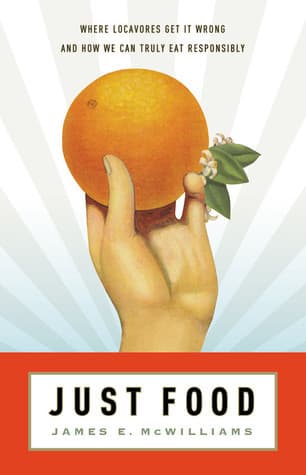
Book Review Summary: Just Food: Where Locavores Get It Wrong and How We Can Truly Eat Responsibly
Introduction
"Just Food: Where Locavores Get It Wrong and How We Can Truly Eat Responsibly" by James McWilliams is a thought-provoking book that challenges conventional views on food production and consumption. The author delves into various aspects of the food industry, including organic farming, genetically modified crops, meat production, and fish farming. McWilliams presents a balanced perspective that encourages informed and educated consumerism, emphasizing the need for sustainable and environmentally responsible practices.
About James McWilliams
James McWilliams is an environmental historian and author. He has previously written books on American history and has a background in agriculture. McWilliams' writing has appeared in various publications, including The Paris Review, The New Yorker, and The New York Times. He currently teaches at Texas State University.
Analysis of Views
- Global food production is more fuel-efficient and economically necessary: McWilliams argues that global food production is more fuel-efficient than local food production. He contends that relying solely on local food production can lead to inefficiencies and higher costs, as it requires more energy to transport food over long distances.
- Organic farming is no more healthy for people and the land: McWilliams challenges the notion that organic farming is inherently healthier for people and the environment. He points out that organic farming can be less sustainable than conventional farming, as it often relies on synthetic fertilizers and pesticides. Additionally, he argues that the distinction between organic and conventional farming is not as clear-cut as many believe.
- Genetically-modified crops can be beneficial: McWilliams acknowledges the potential benefits of genetically modified crops, such as higher yields, drought tolerance, and pest resistance. He suggests that genetically modified crops could play a crucial role in feeding the world's growing population without depleting natural resources. However, he also emphasizes the need for caution and responsible use of these technologies.
- Meat production and fish farming must be reduced: McWilliams advocates for drastically reducing our consumption of meat and wild fish. He argues that these sources of protein are resource-intensive and contribute significantly to environmental degradation. Instead, he suggests exploring alternative sources of protein, such as plant-based diets or sustainable fish farming.
- Perverse subsidies must be eliminated: The author criticizes the government's role in supporting unsustainable agricultural practices through subsidies. He suggests that eliminating these subsidies would encourage more sustainable farming practices and promote a fairer distribution of resources.
Reasons for Recommendation
- Challenges conventional views: "Just Food" offers a fresh perspective on food production and consumption, challenging readers to think critically about their beliefs and assumptions.
- Well-researched and well-argued: McWilliams presents well-researched arguments supported by evidence and examples, making his points convincing and compelling.
- Encourages informed consumerism: The book encourages readers to become more informed and responsible consumers by providing tools to evaluate the environmental impact of their food choices.
- Balanced perspective: McWilliams presents a balanced perspective on various aspects of food production, acknowledging both the benefits and drawbacks of different practices. This approach allows readers to make more informed decisions about their consumption habits.
Reasons for Not Recommendation
- Lacks focus on nutrition: While McWilliams discusses various aspects of food production, he does not provide a comprehensive analysis of nutritional considerations. Readers interested in exploring the nutritional implications of different food choices may find this aspect lacking.
- Repetitive at times: Some readers may find the book repetitive in certain sections, with the author repeating points or providing excessive examples to support his arguments. This can make the reading experience feel tedious at times.
Conclusion
"Just Food: Where Locavores Get It Wrong and How We Can Truly Eat Responsibly" by James McWilliams is a thought-provoking book that challenges conventional views on food production and consumption. McWilliams presents well-researched arguments supported by evidence, encouraging readers to become informed and responsible consumers. While some readers may find certain aspects repetitive or lacking in focus on nutrition, overall, the book offers valuable insights into the complexities of our food system and the need for sustainable practices.